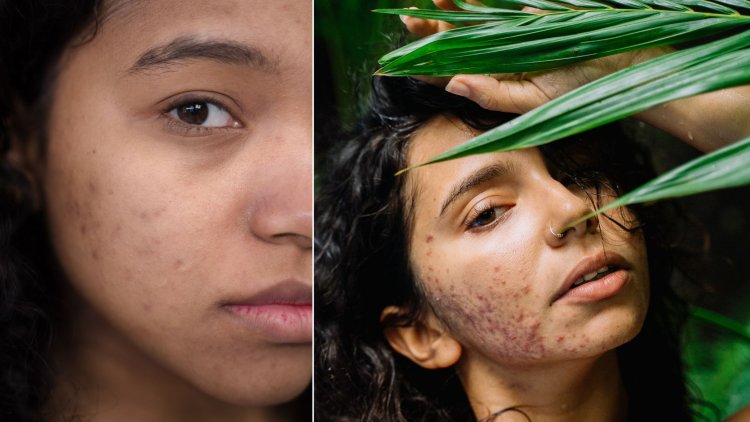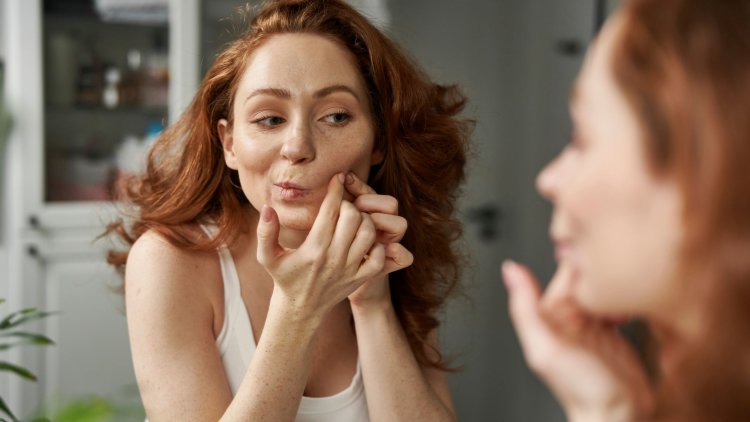The Connection Between Hormones and Acne: What Women Should Know
Women often face hormonal acne due to changes in hormones throughout their lives. For those struggling with acne scars, professional solutions like laser treatment for acne scars in Hyderabad can provide effective results and restore skin confidence.
Share this Post to earn Money ( Upto ₹100 per 1000 Views )

Acne is a common skin condition that affects individuals of all ages, but it can be particularly troublesome for women due to the unique hormonal fluctuations they experience throughout their lives. Understanding the connection between hormones and acne is essential for effective treatment and management, especially for women who are often looking for targeted acne treatments. In this blog, we will explore how hormones influence acne, the various hormonal changes that women go through, and what acne treatment options are available, including laser treatment for acne scars in Hyderabad.
Understanding Hormonal Acne
Hormonal acne is primarily triggered by fluctuations in hormone levels, particularly androgens, which are male hormones that both men and women produce. During puberty, menstruation, pregnancy, and menopause, women experience significant hormonal changes that can lead to increased oil production in the skin, clogged pores, and the growth of acne-causing bacteria. This hormonal acne is often characterized by its location on the face, with breakouts frequently appearing on the jawline, chin, and cheeks.
Key Hormones Involved in Acne
-
Androgens: Testosterone is the most well-known androgen, and its levels can rise during puberty and other life stages, leading to increased oil production in sebaceous glands. This excess oil can clog pores and result in acne.
-
Estrogen: This female hormone has a balancing effect on androgens. Low estrogen levels can result in higher androgen activity, contributing to acne flare-ups, especially around the menstrual cycle.
-
Progesterone: Levels of progesterone increase in the second half of the menstrual cycle, often leading to increased oil production and the potential for breakouts.
-
Insulin: High insulin levels can stimulate the ovaries to produce more androgens, creating a cycle of increased oil production and acne.

Hormonal Fluctuations Throughout a Woman’s Life
Women experience various hormonal fluctuations at different life stages, each of which can impact skin health:
1. Puberty
During puberty, the body undergoes significant hormonal changes. The surge in testosterone leads to increased sebum production, which often results in the onset of acne. This is a critical period for acne treatment in Hyderabad, as early intervention can prevent long-term scarring.
2. Menstrual Cycle
Many women notice that their acne worsens in the days leading up to their period. This is due to the rise in progesterone, which increases oil production. Understanding this connection can help women manage their acne more effectively, perhaps by scheduling treatments or utilizing products that are tailored to combat hormonal fluctuations.
3. Pregnancy
Pregnancy brings about dramatic hormonal shifts, particularly an increase in estrogen and progesterone. While some women may experience clearer skin during pregnancy due to these hormonal changes, others may find that they suffer from acne, especially in the first trimester. Treatment options should be carefully considered during this time to ensure safety for both mother and baby.
4. Menopause
As women approach menopause, estrogen levels decline, which can lead to various skin issues, including dryness and the resurgence of acne. The shift in hormonal balance can make it challenging to maintain clear skin. Many women seek acne treatments or Laser Treatment for Acne Scars in Hyderabad during this time to address both current breakouts and past scars.
Managing Hormonal Acne
To effectively manage hormonal acne, it’s important to take a multi-faceted approach. Here are some strategies that women can consider:
1. Topical Treatments
Over-the-counter and prescription topical treatments can help combat acne. Ingredients like benzoyl peroxide, salicylic acid, and retinoids are commonly used to reduce inflammation, unclog pores, and promote cell turnover.
2. Hormonal Birth Control
For women who experience severe hormonal acne, hormonal birth control can help regulate hormone levels, reducing oil production and preventing breakouts. Options such as combined oral contraceptives can be particularly effective in this regard.

3. Diet and Lifestyle Changes
A balanced diet that minimizes high-glycemic foods (such as white bread and sugary snacks) can help manage insulin levels and, in turn, androgen production. Incorporating plenty of fruits, vegetables, lean proteins, and healthy fats can support overall skin health. Regular exercise and proper hydration also play crucial roles in maintaining hormonal balance and skin health.
4. Stress Management
Stress can exacerbate acne by triggering hormonal fluctuations. Techniques such as yoga, meditation, and mindfulness can help manage stress levels, potentially leading to clearer skin.
5. Professional Treatments
For women who struggle with persistent acne or are dealing with acne scars, professional treatments may be necessary. Dermatologists in Hyderabad offer a range of options, including chemical peels, microdermabrasion, and laser treatments. Laser treatment for acne scars in Hyderabad has gained popularity due to its effectiveness in reducing the appearance of scars and improving skin texture.
6. Consultation with a Dermatologist
Working with a dermatologist can provide personalized treatment plans based on individual hormonal profiles and skin types. They can recommend the most effective medications, topical treatments, and procedures to manage both current breakouts and scarring.

When to Seek Help
It’s important for women to seek help when they experience persistent or severe acne that affects their quality of life. A dermatologist can offer insights into the underlying hormonal issues and help develop a tailored treatment plan. In many cases, early intervention can lead to better outcomes and minimize the risk of scarring.
Conclusion
Understanding the connection between hormones and acne is essential for women seeking effective treatments. By recognizing how hormonal changes can influence skin health, women can take proactive steps to manage their acne. Whether through lifestyle adjustments, topical treatments, hormonal therapies, or professional services like laser treatment for acne scars in Hyderabad, there are numerous options available to achieve clear, healthy skin.
Women should prioritize their skin health by staying informed and seeking professional guidance when necessary. With the right approach, it's possible to navigate the complexities of hormonal acne and maintain confidence in one's skin at any age.

 drravali
drravali 















